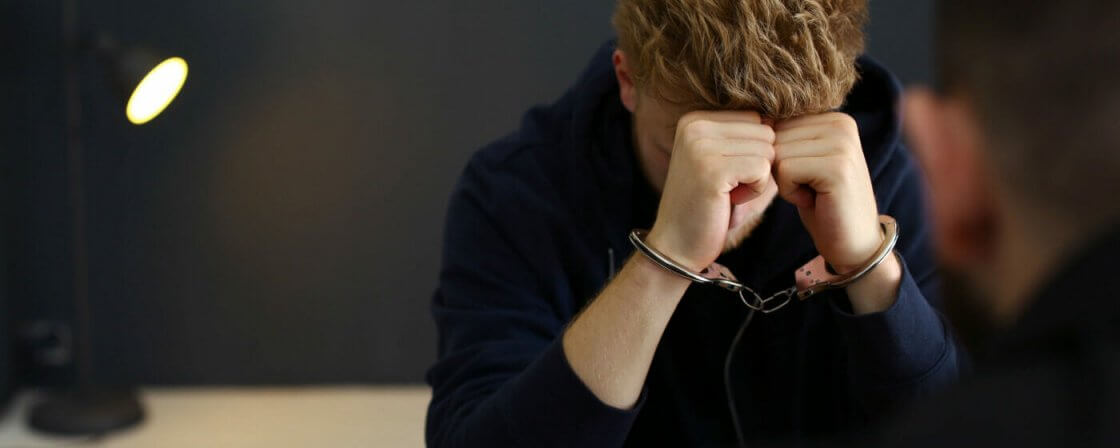General principles of punishment
When sentencing an offender, judges must be guided by the principles of criminal law. Simply put, they start from a certain framework offered by the individual offence (for example, “whoever repeatedly disrupts the proceedings of the court in a serious manner shall be sentenced to imprisonment for up to two years…”). However, they must take into account a number of other circumstances. These are partly related to the offender’s personality (e.g. whether this is his first offence or whether he is a repeat offender, what are his possibilities of reform and the circumstances in which he lives, what is the age of the offender and his state of mind, etc.). They are also partly related to the offence (whether there are circumstances which exclude the illegality of the offence, the danger of the offence to society, etc.). Some of these circumstances are characterised by the Criminal Code as so-called mitigating or aggravating circumstances.
What are mitigating circumstances?
Mitigating circumstances are circumstances that allow the court to impose a lighter sentence. Some relate directly to the person of the offender, others to the circumstances of the offence. However, the Criminal Law gives only a demonstrative list of these, which means that the judge may take into account other mitigating circumstances. It is then up to the experienced defence lawyer to note such circumstances and highlight them in the defence, as they have a crucial influence on the level of the sentence. Of course, the more such circumstances that arise, the better for the offender.
In layman’s terms, acts of extreme hardship and necessary defence are also considered to be mitigating circumstances. But the view of criminal law theory is different. These are the aforementioned circumstances precluding unlawfulness and cannot therefore be confused with mitigating circumstances. In such a case, the offence has not actually been committed and therefore mitigating circumstances cannot be considered at all.
Conversely, a situation may arise where a certain circumstance is a direct statutory feature of the offence. Even then, it cannot be taken into account as a mitigating circumstance. Also, if there is only an attempt to commit the offence, this is not a mitigating circumstance and such an act is punishable under the same criminal rate provided for a completed offence.
An example would be a situation where a man wants to murder his business partner and takes a firearm for this purpose. The bullet hits the victim in the abdomen, but does not hit the vital organs and the victim survives. Nevertheless, this attempted murder is judged in the same way as a completed murder.
However, attempted murder is a different case where the perpetrator changed his mind and voluntarily refrained from completing the crime. For example, he goes to his partner with a firearm with the intention of killing him, but ends up leaving the gun in his briefcase and regrets his idea. In such a case, the act is not criminal.
Are you solving a similar problem?
Do you need a criminal defense attorney?
If you are involved in a pending lawsuit and are looking for a reliable defense, contact us. Our criminal law specialists will stand up for your rights in the proceedings. Contact us and we will prepare an offer within 48 hours.
I want to help with the defense
- When you order, you know what you will get and how much it will cost.
- We handle everything online or in person at one of our 6 offices.
- We handle 8 out of 10 requests within 2 working days.
- We have specialists for every field of law.
Tip for article
What is a crime and how do we divide them we discussed in our separate article.
Mitigating circumstances concerning the perpetrator:
Circumstances may be understood as mitigating circumstances if the offender:
- Committed the offence for the first time and under the influence of circumstances beyond his/her control – provoking the victim is often assessed as the influence of circumstances beyond the offender’s control. This cannot, of course, exclude unlawfulness, but it is a mitigating circumstance.
- Committing the offence at an age close to the age of juvenile – a juvenile is defined as a person between 15 and 18 years of age. However, even shortly thereafter (i.e., around 19 to 20 years of age), age can be taken advantage of when the offense is committed.
- He or she has contributed to the elimination of the harmful consequences of the offence or has voluntarily compensated for the damage caused – here it is primarily a voluntary act where the offender pays for the damage caused. The fact that the damage is recovered from him in criminal or other proceedings is undoubtedly not a mitigating circumstance.
- He had led a good life before committing the offence – this does not mean merely that the offender has not been punished before, which is also regarded as another mitigating circumstance. Rather, what the law means here is that the offender has behaved properly, has not disturbed civil life and has generally complied with the rule of law. In other words, there were no problems with him.
Mitigating circumstances relating to the offence:
The next group of mitigating circumstances focuses on the offence itself. This includes situations where the offender:
- Committed the offence by averting an attack or other danger without fully meeting the conditions of necessary defence or extreme urgency, or exceeded the limits of permissible risk or the limits of another circumstance precluding unlawfulness. As stated above, extreme hardship and necessary defence are circumstances precluding unlawfulness. However, a situation may arise where, for example, the victim resists an attack by the perpetrator, which is perfectly fine, but at some point the attack ends and the victim still continues to attack the perpetrator out of sheer vindictiveness. Then the limits of necessary defence are exceeded and the victim’s actions may be characterised as a criminal offence at that moment (also depending on the consequence), but the fact that the actions started as necessary defence will still be taken into account.
- The offence has caused lesser harm or other lesser harm – the law does not quantify this harm, but we will generally talk about the lower limit of what can be understood as harm for the offence.
- Committed the offence under the influence of distressing personal or family circumstances not of his or her own making – this could be, for example, serious illness, divorce or alcoholism of a family member. However, it must be shown that these circumstances had an influence on the offender; their mere existence is not sufficient.
- The offender committed the offence under the pressure of dependence or subordination – dependence is more likely to mean family or student-teacher relationships. Subordination is then understood as, for example, employment relationships (e.g. military, police, etc.). It is not necessarily necessary that the instruction to commit the offence comes from a superior.
- He committed the offence in a legally avoidable error – it is the addendum on avoidability that is important here. If, for example, I could and should have studied a certain procedure for handling an instrument, but I did not do so, and by handling what I thought was the right thing to do I caused harm to someone, this can be seen as an avoidable mistake. If it was an unavoidable mistake, the act would not be punishable.
- The off encewas committed in a state of intense distress, out of compassion or lack of life experience – a typical example of a crime of compassion would be the killing of a terminally ill person, even at their express wish, i.e. euthanasia.
Other mitigating circumstances:
Other mitigating circumstances refer to the perpetrator’s greater or lesser degree of cooperation with the police or other authorities. It speaks of the fact that the perpetrator:
- Self-reported his/her crime to the authorities – this also means the offender’s admission that he/she committed the crime. Simply calling 158 to report that a murder has occurred in the park does not fall under this mitigating circumstance.
- Assisting in the discovery of one’s own crime or making a significant contribution to the discovery of a crime committed by another – cooperation with the police in discovering crime is also largely judged by the police’s ability to discover the matter in a given situation. If the police are floundering in the investigation of a particular crime and someone provides them with a clear lead to clarify the matter, then this may be a mitigating circumstance. On the other hand, a situation where an offender tells the police that he had an accomplice in a burglary, when the police soon discover this information from a video recording (including a detailed image of the other offender in which he recognises the brother of the accused), will undoubtedly not help.
- He has contributed to the clarification of criminal activities committed by members of an organised criminal group – this is similar to the above circumstance, with the difference that here it is a case of organised crime, which can bring significantly more benefit to society.
Tip for article
In the case of criminal offences, we may encounter a situation where the offender’s conduct meets all the elements, but still cannot be punished for the offence because too much time has elapsed since the offence was committed. We are talking about the statute of limitations on the offence. You can read exactly how it works in our article.
Aggravating circumstances
Of course, the offender’s lawyer does not point to aggravating circumstances, but it is good to know that they exist and can influence the amount of the sentence towards the upper limit of the criminal rate.
Typical aggravating circumstances are:
- Committing the crime with deliberation or after prior consideration (we certainly perceive a difference when someone in an affect, after an argument, fights with his friend and causes him even considerable injuries and when someone prepares to go to beat up his friend, arranges it with an acquaintance and equips himself in advance with a weapon).
- Committing a crime for profit, for revenge, for national, racial, ethnic, religious, class or other similar hatred – in such a case these motives must be significant. The mere fact that the perpetrator and the victim are of different ethnic or religious origin is not aggravating.
- The commission of a crime taking advantage of someone’s distress, hardship, vulnerability, dependence or subordination – in such a situation, the victim’s decision-making is restricted.
- Committing the offence in a brutal or torturous manner, insidiously or with subterfuge – brutality refers more to the actions of the offender, while torturous manner takes into account the victim’s experience. Of course, both possibilities are not excluded at the same time.
Tip for article
A specific type is crimes committed in an organized criminal group. You can read how organised crime manifests itself in our article.
Summary
When imposing a sentence, the court takes into account not only the statutory rate but also mitigating and aggravating circumstances. Mitigating circumstances allow for mitigation of the sentence and may relate to both the offender and the offence itself. These include, for example, first offence, young age, voluntary payment of damages, orderly life before the offence, acting under pressure, severe agitation or compassion. Co-operation with the police, confession and assistance in solving the crime are also positively assessed.
On the other hand, aggravating circumstances are, for example, premeditated actions, profiteering, hateful motives, taking advantage of the victim’s weakness or a particularly brutal and insidious way of committing the crime. These may significantly increase the severity of the punishment. The correct application of mitigating circumstances in the defence can then have a major impact on the outcome of the proceedings.




